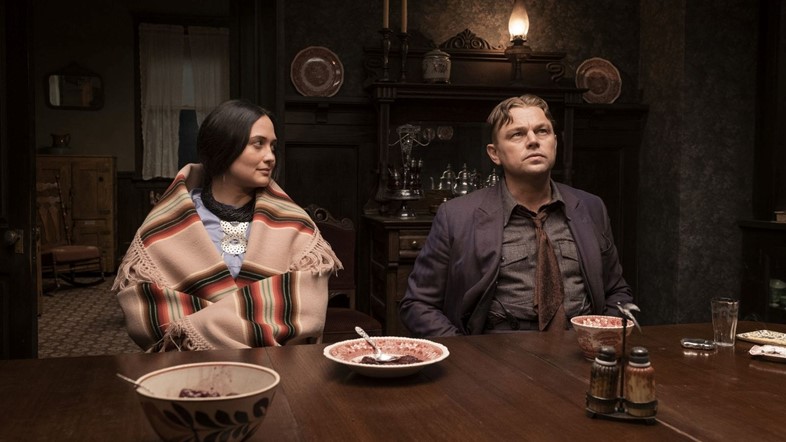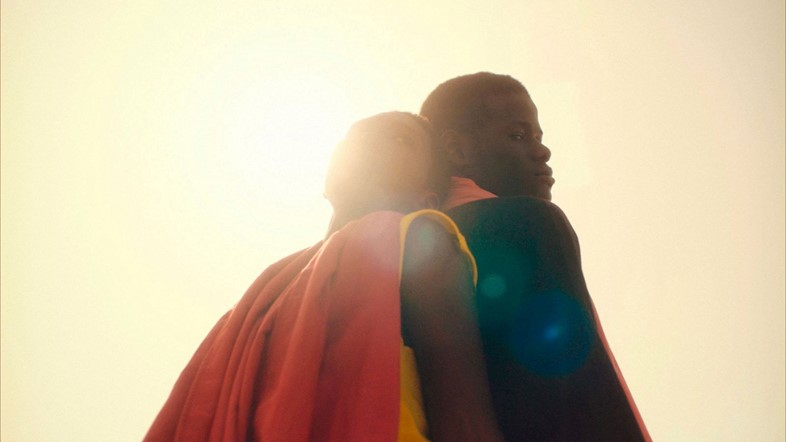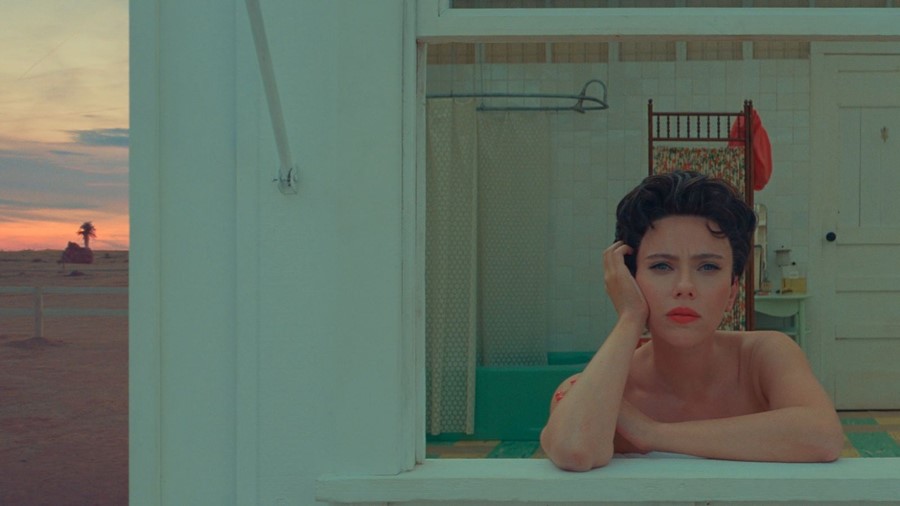From Wes Anderson’s star-studded Asteroid City to Jonathan Glazer’s Auschwitz-set drama; here are the most interesting films to look out for at this year’s festival
Asteroid City (Wes Anderson)
A new film from Wes Anderson seems to be met with an eye roll in certain quarters of the internet nowadays, but not in Cannes, where the Wonka-ish auteur is back for a third time in competition with Asteroid City. The plot revolves around the presumably whimsical goings-on at a junior stargazer’s convention in a fictional American desert town, shot in vivid pastel hues like some kind of bizarre Tex Avery/Great British Bake Off mashup. Time will tell if the distractingly starry cast will make it more of an amuse-bouche Wes than a plat principal, but the premise makes us think, vaguely, of Rushmore, which can only be a good thing.
Club Zero (Jessica Hausner)
Inspirational teachers are everywhere you look in cinema, but what about the ones whose command of the classroom masks something more sinister? Mia Wasikowska stars in Club Zero, the new film from Cannes darling Jessica Hausner, as a teacher at an elite boarding school who indoctrinates the kids in so-called ‘conscious eating’, encouraging her students to eat less – and finally, nothing at all. It’s a wild premise for a film that’s been the subject of much early buzz among industry watchers.
The Zone of Interest (Jonathan Glazer)
Jonathan Glazer’s mesmerising CV to date spans surreal gangster comedies (Sexy Beast), supernatural love stories (Birth) and soul-sucking sci-fi freakouts (Under the Skin); for his Cannes debut, he’s headed to Auschwitz for the tale of a Nazi officer who falls for the prison camp commander’s wife. Adapted from Martin Amis’ novel of the same name, it stars Sandra Hüller (Toni Erdmann) and will see the director team once more with Mica Levi, whose score for Under the Skin was a thing of blood-freezing beauty.

Killers of the Flower Moon (Martin Scorsese)
At the end of the 19th century, oil was discovered under a Native American reservation in Oklahoma, making members of the Osage tribe the richest community in the world. To say the white folk were not best pleased would be putting it mildly; in fact it’s the subject of Martin Scorsese’s latest crime epic, adapted from David Grann’s dynamite non-fiction book of the same name. The film – which brings the much-loved auteur back to the Croisette for the first time since 1984 – tells the story of Tom White (Jesse Plemons), an investigator with the newly minted FBI, who uncovers a murderous plot to swindle the natives out of their fortunes. It’s a shocking story that touches on some supremely timely issues and brings together Scorsese’s two great muses, Robert De Niro and Leonardo DiCaprio, for the first time in his work.
Close Your Eyes (Víctor Erice)
Víctor Erice’s reputation rests on the slimmest of oeuvres: just three films in 50 years, beginning, unforgettably, with 1973’s The Spirit of the Beehive, a dreamlike lament for a lost Spain that helped call forth the post-Franco era of Spanish filmmaking. (Pedro Almodóvar and Guillermo Del Toro are among his many admirers.) Now he’s taking his fourth, Close Your Eyes, to Cannes at the ripe old age of 82: apparently, it’s about an actor who reappears decades after falling off a cliff, presumably to his death, while filming on a project.
May December (Todd Haynes)
It’s been a minute since we’ve seen Natalie Portman sink her teeth into a dramatic role worthy of her talents, so there’s plenty of hype swirling around May December, Todd Haynes’ new film competing for this year’s Palme D’Or. The story sees Portman play a Hollywood actress who, while researching her latest role, goes to stay with a woman (regular Haynes collaborator Julianne Moore) whose affair with a much younger man once gripped the nation as tabloid news. With luck, we can expect more of the lushly textured melodrama that Haynes mined so beautifully in the likes of Carol and Far From Heaven.
Occupied City (Steve McQueen)
Steve McQueen’s tireless excavations on British history will be remembered long after Rishi Sunak and his band of Brexit hoodlums have been booted from office. The artist and filmmaker followed his career-high Small Axe series with a documentary mini-series, Uprising (2021), on three flashpoints in Black civil unrest that upended the country in 1981; a non-narrative film about the Grenfell disaster exhibited in April this year; and an exhibition on the history of blackface in February. Now he’s training his gaze to Europe with Occupied City, Amsterdam 1940-1945, a documentary epic on the Dutch city under Nazi rule adapted from a book by his wife, historian and director Bianca Stigter. The film will premiere as a special screening at the festival; inspired by its making, McQueen has since gone on to film Blitz, a WWII drama starring Saoirse Ronan, now in post-production.

Banel & Adama (Ramata-Toulaye Sy)
Well this is intriguing: Banel & Adama is the only debut feature to premiere in the official competition, traditionally the preserve of established auteurs slugging it out for the festival’s top prize. Thirty-six-year-old French-Senegalese director Ramata-Toulaye Sy’s first film tells the story of a couple whose passionate love affair ruffles feathers in the tradition-bound rural community they live in, and caps a strong showing for African diasporic voices at this year’s festival. Expect a lot of eyes on this one to see what the fuss is all about.
Fallen Leaves (Aki Kaurismäki)
Aki Kaurismäki is one of cinema’s great humanist voices, and with right-wing populism on the rise at home news of the Finnish director’s return to screens could not be more welcome. Fallen Leaves is the first film in six years from the veteran auteur – whose ultra-deadpan, minimalist style has been channelled by the likes of Jim Jarmusch and Roy Andersson – and is billed as a tragicomedy about two lonely people who begin an affair after a chance encounter in Helsinki.
How to Have Sex (Molly Manning Walker)
Another eye-catching title – but for somewhat different reasons – is How to Have Sex, competing in the Un Certain Regard strand of the festival. Molly Manning Walker’s debut feature honours the longstanding British tradition of teenagers flocking to all corners of the Med on holiday, getting lashed and getting laid – but instead of soft-soaping the subject as in, say, The Inbetweeners, Walker’s feature promises a harder-edged look at the violence inherent in teen courtship rituals. Think Martin Parr meets Gaspar Noé – whom Walker has cited as an influence – but with more full English breakfasts.
Cannes Film Festival 2023 runs from 16 - 27 May 2023.
